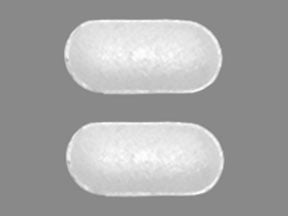
Lactase Enzyme Coupons & Savings Card – Discount Prices from $9.02
This product is an enzyme supplement used to help people who have trouble digesting milk and other dairy products (lactose intolerance). Lactose is a type of sugar found in milk products. Lactase enzyme is normally produced by the body to help break down (digest) lactose. Lactose intolerance occurs when the body produces low amounts of lactase enzyme. Lactose intolerance can begin at different ages. Infants are not usually affected, but lactose intolerance can affect children as young as 2. It is very common in adults. One way to treat lactose intolerance is to avoid milk products. However, this can result in a lack of important nutrients and vitamins such as calcium, vitamin D, riboflavin, and protein. Some people use lactose-free milk or milk substitutes such as soy or rice milk. Most people with low lactase enzyme levels can tolerate small amounts of milk products at one time (2-4 ounces) and get symptoms only with larger servings (6 ounces or more). Taking lactase enzyme with milk products as directed can help prevent upset stomach, abdominal bloating/cramping, gas, and diarrhea caused by these products. The FDA has not reviewed this product for safety or effectiveness. Consult your doctor or pharmacist for more details.
Our Lactase Enzyme coupons are free to use. You can print the coupon, email it to yourself, or receive the Lactase Enzyme coupon via text message. To get your free discount, show the pharmacist your Lactase Enzyme savings card which has the discounted coupon price. Use our filters below to edit the prescription box to match your needs. The Lactase Enzyme prices will update based on your prescription needs. Above our Lactase Enzyme coupons, you can change the location to see pharmacy prices in other areas. Our prescription discount card will update online with the specific pharmacy costs associated with your edits. Be sure to text, email, or print the Lactase Enzyme savings card code that you need after editing the prescription box and location field. Show the discount card to your pharmacist before paying.
My prescription
Edit
3000UNIT, Lactase Enzyme (90 Tablets)
Select pharmacy

Albertsons
$9.02
COUPON PRICE
Walgreens
$9.29
COUPON PRICELactase Enzyme savings card
Show this card to your pharmacist
Albertsons
$9.02
BIN
ID
PCN
GRP
019876
LH2364E6BD
CHIPPO
LHX
Powered by
This product is an enzyme supplement used to help people who have trouble digesting milk and other dairy products (lactose intolerance). Lactose is a type of sugar found in milk products. Lactase enzyme is normally produced by the body to help break down (digest) lactose. Lactose intolerance occurs when the body produces low amounts of lactase enzyme. Lactose intolerance can begin at different ages. Infants are not usually affected, but lactose intolerance can affect children as young as 2. It is very common in adults. One way to treat lactose intolerance is to avoid milk products. However, this can result in a lack of important nutrients and vitamins such as calcium, vitamin D, riboflavin, and protein. Some people use lactose-free milk or milk substitutes such as soy or rice milk. Most people with low lactase enzyme levels can tolerate small amounts of milk products at one time (2-4 ounces) and get symptoms only with larger servings (6 ounces or more). Taking lactase enzyme with milk products as directed can help prevent upset stomach, abdominal bloating/cramping, gas, and diarrhea caused by these products. The FDA has not reviewed this product for safety or effectiveness. Consult your doctor or pharmacist for more details.
Our Lactase Enzyme coupons are free to use. You can print the coupon, email it to yourself, or receive the Lactase Enzyme coupon via text message. To get your free discount, show the pharmacist your Lactase Enzyme savings card which has the discounted coupon price. Use our filters below to edit the prescription box to match your needs. The Lactase Enzyme prices will update based on your prescription needs. Above our Lactase Enzyme coupons, you can change the location to see pharmacy prices in other areas. Our prescription discount card will update online with the specific pharmacy costs associated with your edits. Be sure to text, email, or print the Lactase Enzyme savings card code that you need after editing the prescription box and location field. Show the discount card to your pharmacist before paying.
Lactase Enzyme FAQs
Using the SaveHealth discount card, what is the price of Lactase Enzyme without insurance?
Using the SaveHealth discount card, the price of Lactase Enzyme without insurance is $9.02.
What is the price of Lactase Enzyme at Walgreens?
The price of Lactase Enzyme at Walgreens is $9.29.
